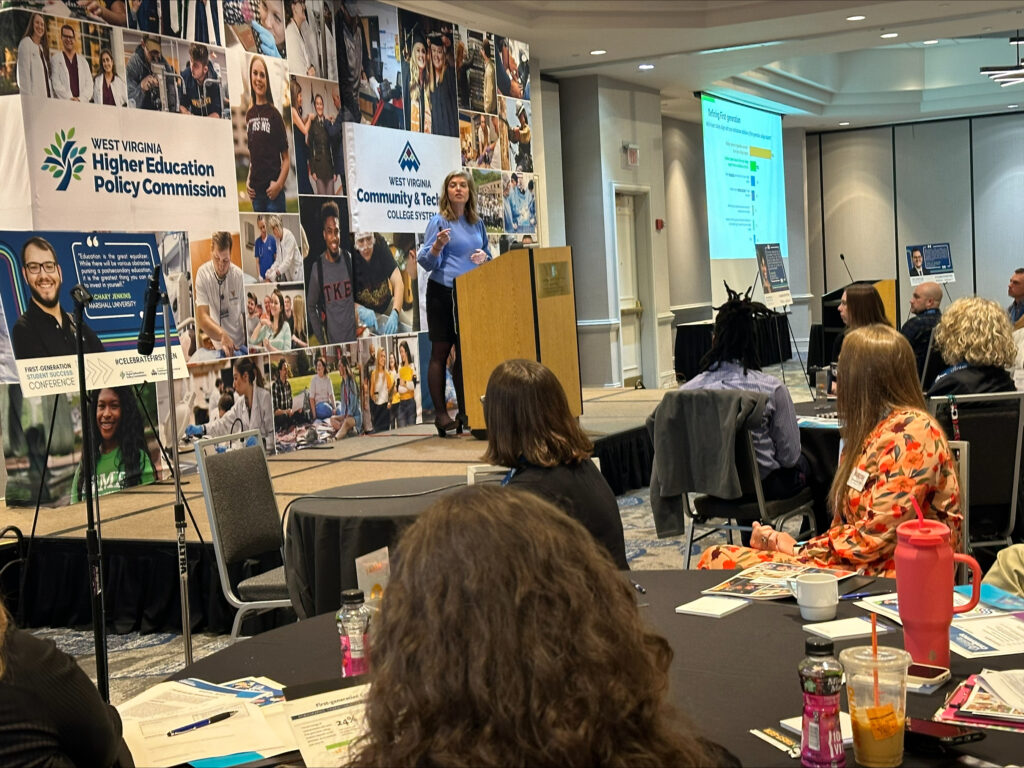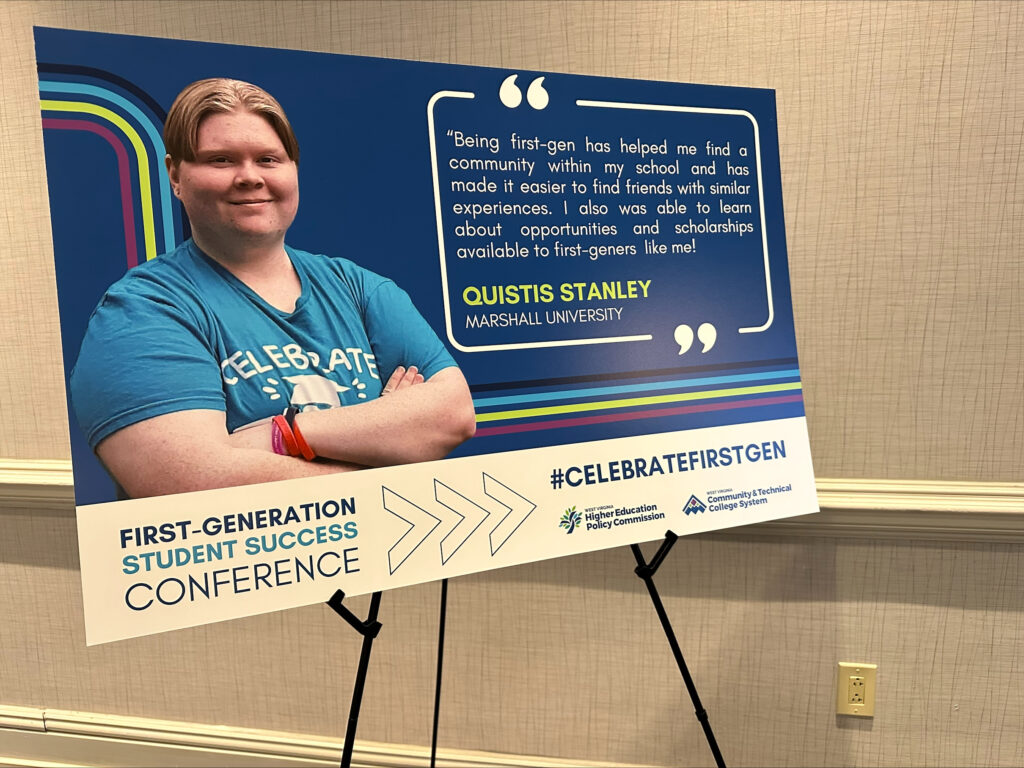West Virginia higher education community convenes to focus on first-generation student success

Charleston, W.Va. –The West Virginia Higher Education Policy Commission and Council for Community and Technical College recently hosted the West Virginia First-Generation Student Success Conference at the Embassy Suites in Charleston, drawing representatives from colleges across the state. This event focused on advancing the academic success of first-generation college students. Participants focused on addressing first-generation students’ unique needs, which is paramount to ensuring their success in college and in their careers.

Quistis Stanley, a student attending Marshall University, reflected on her experience as a first-generation student on campus, saying, “Being first-gen has helped me find a community within my school and has made it easier to find friends with similar experiences. I also was able to learn about opportunities and scholarships available to first-geners like me.”
Dr. Stephanie Bannister, Assistant Vice President at the national Center for First-generation Student Success, shared insights alongside Kyle Nixon, Director of Network Recruitment and Operations, and Ashlee Kocina Young, Associate Director for Network Engagement. Their presentations delved into key areas, including creating inclusive campus environments, leveraging data to support first-generation students, refining recruitment and retention strategies, and tailoring programming to meet the specific needs of this student population.
Elizabeth Manuel, Senior Director of Student Services at the West Virginia Higher Education Policy Commission, emphasized the importance of fostering a welcoming environment for first-generation students, stating, “First-generation students bring unique perspectives and experiences to college campuses. West Virginia has a large population of first-generation students and creating an inclusive and supportive environment is not only essential to their academic success, but it also enriches the entire educational community. By understanding and addressing first-generation students’ needs, we can empower them to excel and thrive not only in higher education but in their future careers as well.”
Attendees left with action plans to implement at their respective institutions and will reconvene this fall.
Charleston, W.Va. –The West Virginia Higher Education Policy Commission and Council for Community and Technical College recently hosted the West Virginia First-Generation Student Success Conference at the Embassy Suites in Charleston, drawing representatives from colleges across the state. This event focused on advancing the academic success of first-generation college students. Participants focused on addressing first-generation students’ unique needs, which is paramount to ensuring their success in college and in their careers.
Quistis Stanley, a student attending Marshall University, reflected on her experience as a first-generation student on campus, saying, “Being first-gen has helped me find a community within my school and has made it easier to find friends with similar experiences. I also was able to learn about opportunities and scholarships available to first-geners like me.”
Dr. Stephanie Bannister, Assistant Vice President at the national Center for First-generation Student Success, shared insights alongside Kyle Nixon, Director of Network Recruitment and Operations, and Ashlee Kocina Young, Associate Director for Network Engagement. Their presentations delved into key areas, including creating inclusive campus environments, leveraging data to support first-generation students, refining recruitment and retention strategies, and tailoring programming to meet the specific needs of this student population.
Elizabeth Manuel, Senior Director of Student Services at the West Virginia Higher Education Policy Commission, emphasized the importance of fostering a welcoming environment for first-generation students, stating, “First-generation students bring unique perspectives and experiences to college campuses. West Virginia has a large population of first-generation students and creating an inclusive and supportive environment is not only essential to their academic success, but it also enriches the entire educational community. By understanding and addressing first-generation students’ needs, we can empower them to excel and thrive not only in higher education but in their future careers as well.”
Attendees left with action plans to implement at their respective institutions and will reconvene this fall.
